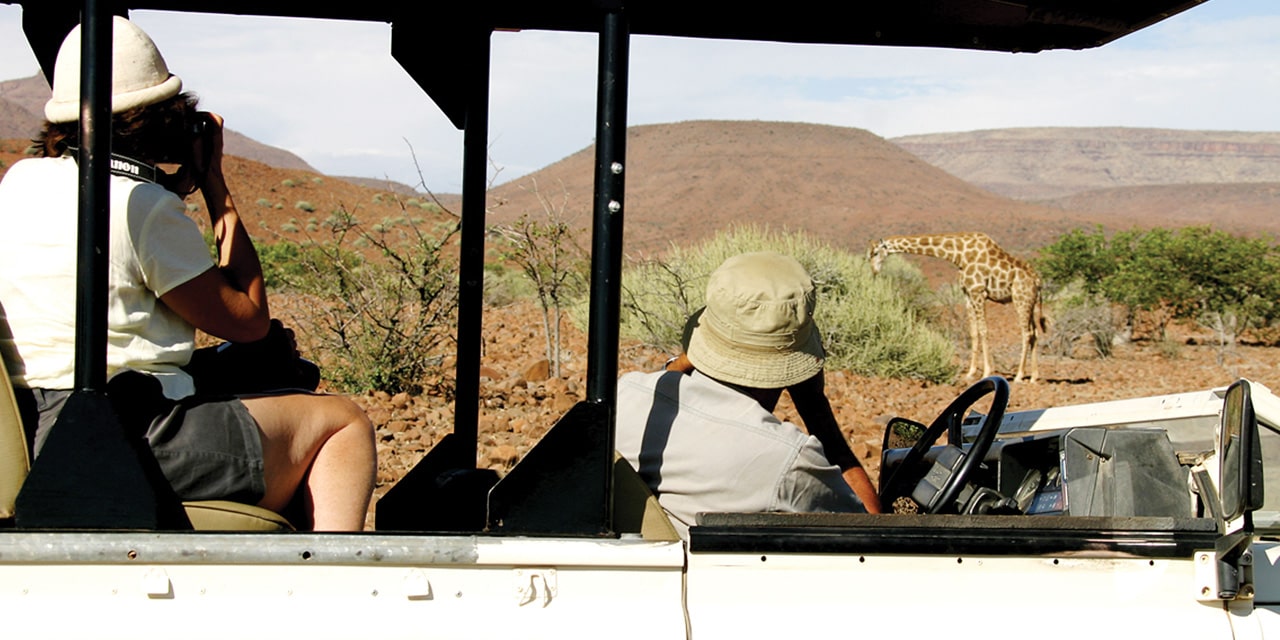Andrew Kathindi
Thousands of workers in the tourism sector could be at risk of contracting COVID-19 as new measures announced by government to revive the sector do not require quarantine for incoming tourists.
President Hage Geingob announced that the International Tourism revival initiative, which was initially supposed to kick off on 15 July but was delayed over disagreements on measures during the consultation process, has now been approved.
According to new measures announced by the President which tourists will not be subjected to a mandatory quarantine, “They will however be required to remain at their first initial destination in the country, for a period of seven days. A test will be conducted during this period and the tourist will be permitted to proceed with their holiday on Day seven, provided the test result is negative.”
The Namibia Food and Allied Workers Union (Nafau) has, however, raised concerns over the risk to the lives of the low wage workers who will have to serve the tourists and clean up after them as they await their results before continuing with their itineraries, but however maintains that saving the sector also remains crucial.
“Our office was not consulted by the government when they changed the state of emergency rules to allow tourists to come in. But looking at the initiative to allow tourism to come back into Namibia has two legs. On one side you might risk our Namibians, and on the other side it might open up the economy,” Nafau’s deputy Secretary- General, Absalom Willem told Windhoek Observer.
He further stated, “As we speak, a huge number of employees in the tourism sector were retrenched. They are not working anymore because there is no more tourism. So allowing tourism to come back may open employment for some of those people. We cannot say yes or no. What we can say is whenever the government allows tourism back into the country; the tourism sector must make sure they adhere to regulations that are there, to make sure prevention measures are in place, so that we cannot further spread COVID-19.”
Currently, Germany and German-speaking countries like Switzerland and Austria were identified as the target market for the initiative, for their previous high volume arrivals to Namibia and also for the ease of access between the two countries. However as it stands, Germany has the third highest confirmed pandemic cases in Europe with 212,331 cases. Europe currently has 2,935,794 confirmed cases.
Namibia Tourism Board CEO, Digu //Naobeb said that the compromise was made to attract tourists to flow back into the country and that the normal measures of wearing a mask and social distancing will be applied to minimize exposure to employees.
“It is currently the same measure as we have at restaurants, where Namibians are travelling to domestically. So the same situation will be happening because we do not even know as Namibians, as we are travelling who is at risk in terms of exposure to these employees. The same modalities will apply,” //Naobeb argued.
He further stated that as consultations continue, the sector is still unsure if even the current measures will work, “for tourists to spend seven days in one place [may be a concern.] Ideally the travelling plans of a tourist are [on average] between 12-14 days. On top of this, the airlines still need to make a call on whether Namibian route will be cost effective for them.”
The health ministry which had previously resisted the easing of the quarantine measures said human resources will be deployed by the ministry’s regional representation to every lodge that has a tourist to swab them on the fifth day of their stay.
Health Ministry Executive Director, Ben Nangombe said other modalities are being looked at, such as having the tourists report themselves for swabbing at the regional offices.
“They will be required to download an app that will allow us to keep track of their movements,” Nangombe said.
Tourism minister Pohamba Shifeta previously told the Windhoek Observer that N$700 million from Ministry of Finance and Social Security Commission had been reserved for COVID-19 affected businesses meeting certain criteria. Minister of Finance Iipumbu Shiimi announced in his initial relief package, N$400 million to be earmarked for the tourism sector, though no criteria or application process has yet materialized.
Some companies have applied and have received support and some are in the process of applying. It’s not in our hands; it’s not coming to the Ministry. The money is available for that, it’s already authorized,” Shifeta had said.
CEO of the Hospitality Association of Namibia (HAN), Gitta Paetzold had indicated that the tourism sector was unlikely to receive any subsidy and hence the need to open borders for tourism.




